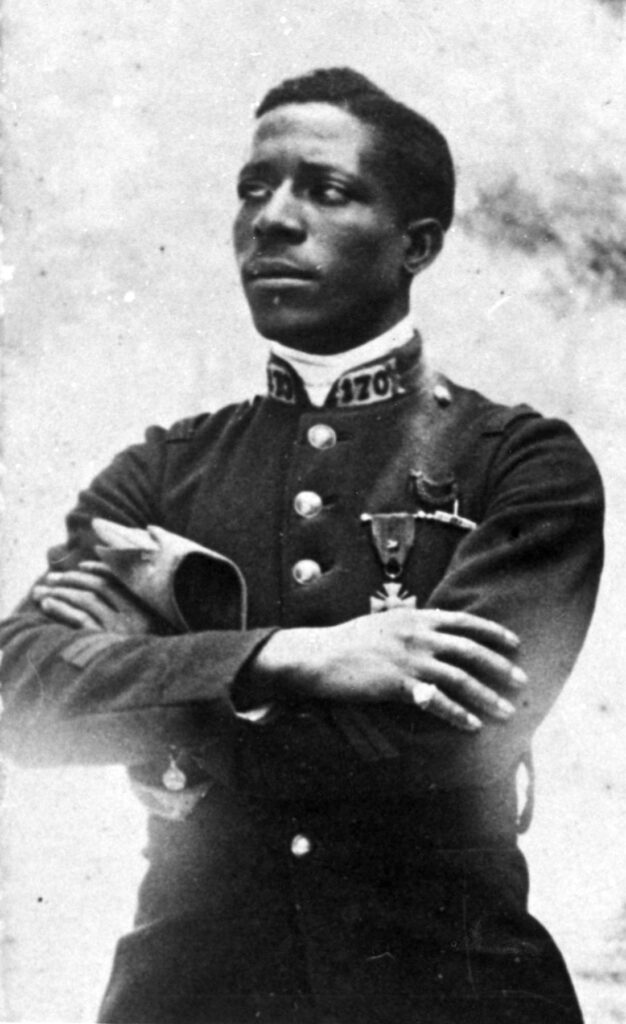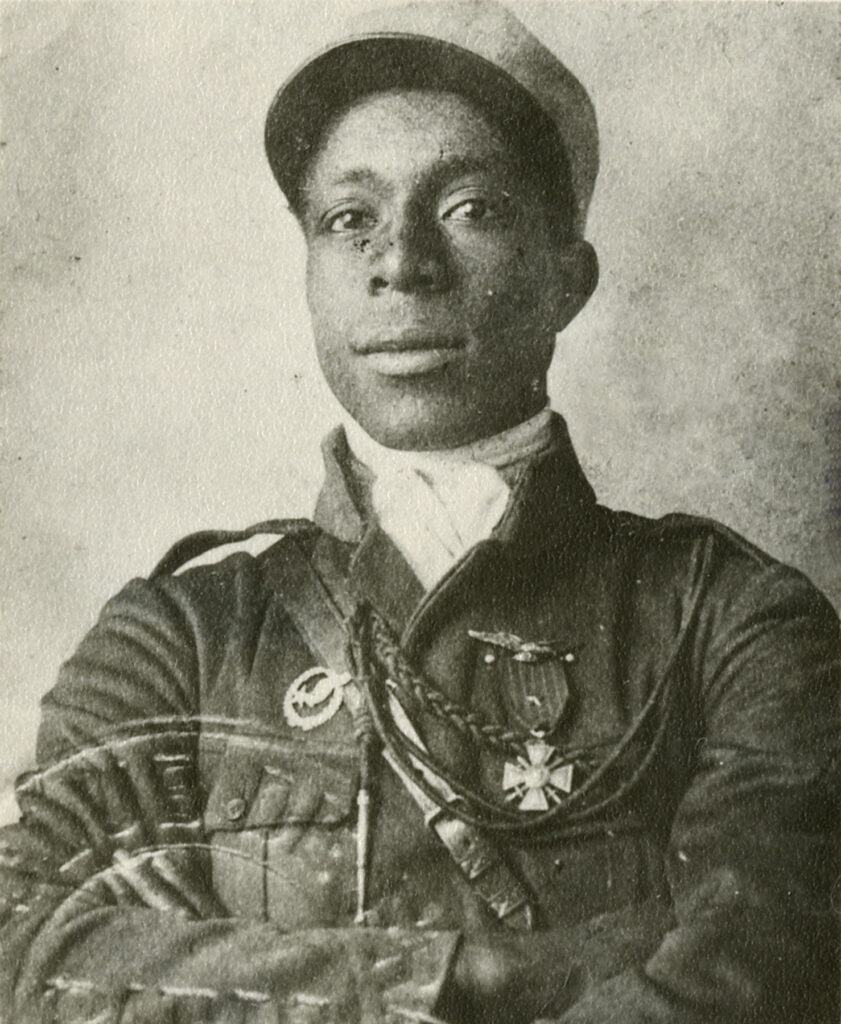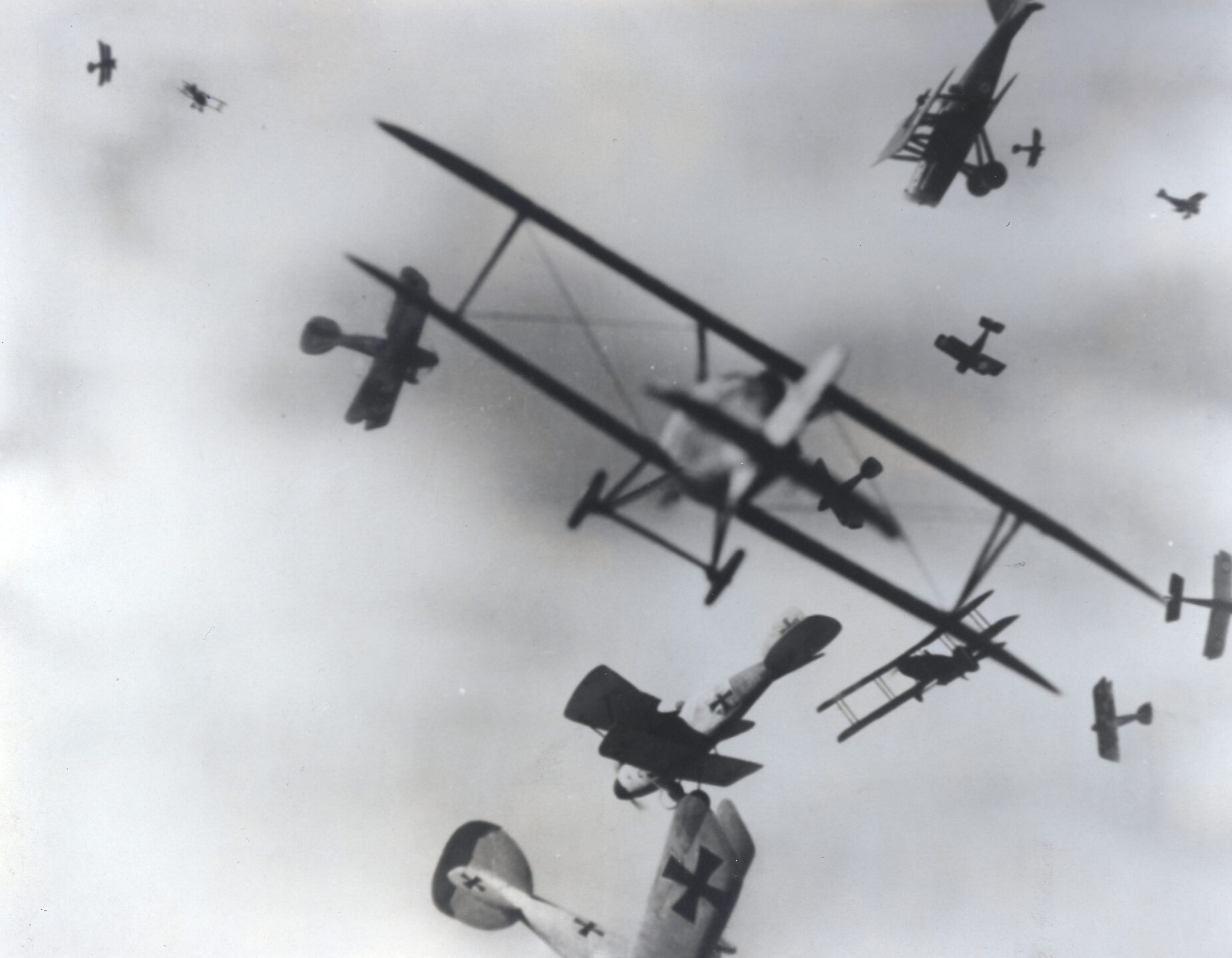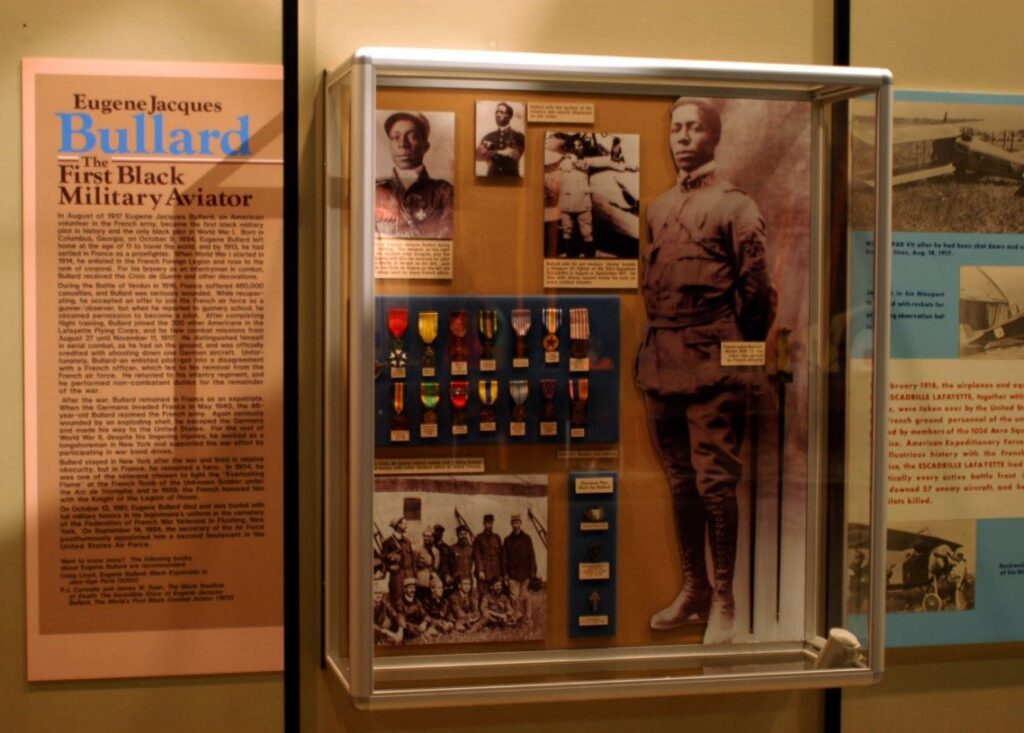A largely unsung and non-known hero of the World War One was the fascinating Eugene James “Jacques” Bullard of the Lafayette Flying Corps.
Biography Eugene Jacques Bullard
Bullard was born in a three-room house in Columbus, Georgia, the seventh of ten children born to William (Octave) Bullard, a black man who was from Martinique, and Josephine (“Yokalee”) Thomas, a Creek Indian. His father’s ancestors had been slaves in Haiti to French refugees who fled during the Haitian Revolution. They reached the United States and took refuge with the Creek Indians.

An adventurer by nature, he left the small town of Columbus and moved to Atlanta by himself while still in his teenage years. He had been told that the way to escape racial prejudice was to head to Europe, particularly France (he once said he witnessed a near lynching of his dad). A long time back his father had pointed out to him that Bullard was a French name and that at least one ancestor had hailed from there. Stirred by all the possibilities, he stowed away on a ship bound for Scotland, arriving at Aberdeen and made his way south to Glasgow. On a visit to Paris, he liked what he saw and how he was treated and decided to settle in France. He became a relatively good boxer in Paris and also worked in a music hall.

France had been good to Bullard, and he quickly fell in love with the country. So when World War I broke out in August 1914, he enlisted in the French Foreign Legion at a time when volunteers from overseas were only allowed to serve in the French colonial troops. Assigned to the 3rd Marching Regiment of the 1st Foreign Regiment as a machine gunner, he saw combat near the Somme River. It was during this time when he learned Americans and other volunteers were now allowed to transfer to Metropolitan French Army units, including the 170th French Infantry Regiment – nicknamed “Les Hirondelles de la Mort,” or “The Swallows of Death.”

Liking the idea of being part of a unit with crack troops appealed to Bullard, so he put in his request to join the regiment. In February 1916, his requested was granted just as the 170th Infantry was sent to Verdun, one of the largest and longest battles of the First World War on the Western Front between the German and French armies. The battle took place on the hills north of Verdun-sur-Meuse in north-eastern France. It was during this battle that Bullard was severely wounded on March 5, 1916 and sent to a Parisian hospital where he spent the next six months recuperating. During convalescence, he was cited for acts of valor at the orders of the regiment on July 3, 1917 and was awarded the Croix de Guerre.
Jeff Davis Dixon Bet with Jacques Bullard for $ 2,000
While convalescing in Paris, his friend and fellow Southerner Jeff Davis Dixon bet Bullard $2,000 that he could not get into the French Air Force. Bullard contended that he could, accepted the bet and on October 5, 1916, arrived at the French aerial gunnery school at Cazaux on the Atlantic. It was here that he met Edmond Genet (the first American flier to die in the First World War in April 1917). He told Bullard about the Lafayette Escadrille which inspired him to be a pilot and not a back seat gunner. In mid-October with Genet’s help he transferred to the flight school at Tours for pilot training. The training took a few more months, but it was inevitably given Bullard’s persistence that it would pay off. Bullard earned his pilot’s license and then Dickerson faithfully paid the $2,000. It was a considerable sum at the time, especially for a gentleman’s bet. Dixon admitted that he hated to lose the money, but was delighted that at least Bullard was from Dixie. The result of the bet was to launch Eugene Bullard into history as a first ever African-American aviator.

Like many other American aviators, Bullard hoped to join the famous Lafayette Escadrille, but after enrolling 38 American pilots in spring and summer of 1916, it stopped accepting applicants. After further training he joined 269 American aviators at the Lafayette Flying Corps on November 15, 1916. American volunteers flew with French pilots in different pursuit and bomber/reconnaissance aero squadrons on the Western Front.
Eugene Jacques Bullard Nickname Became the “Black Swallow of Death.”
On August 27, he was assigned to the Escadrille N.93 based at Beauzee-sur-Aire south of Verdun. The squadron was equipped with Nieuport and Spad VII aircraft that displayed a flying duck as the squadron insignia. He took part in over twenty air combat missions, and he is sometimes credited with shooting down one or two German aircraft. However, the French authorities could not confirm Bullard’s victories. His Spad had an insignia lettered “All blood runs red” and his nickname became the “Black Swallow of Death.”

When the United States entered the war, the United States Army Air Service convened a medical board to recruit Americans serving in the Lafayette Flying Corps for the Air Service of the American Expeditionary Forces. Bullard went through the medical examination, but he was not accepted, as only white pilots were allowed to serve. Sometime later, on a short break from duty in Paris, Bullard allegedly got into an argument with a French commissioned officer and was punished by being transferred to the service battalion of to the 170th infantry Regiment of the French army. He was discharged in October 1919 and returned to Paris.
After the war, Bullard settle down, and in 1923 married a French Countess from a wealthy family named Marcelle Straumann. They settle down and had two daughters Jacqueline and Lolita.
Post war Bullard bought a bar named “Le Grand Duc” on the north side of Paris. In the late 1930s, prior to the outbreak of World War II, he was recruited by French intelligence to spy on the Germans who come by his bar. He remained very devoted to France and tried to join the French army but was considered too old. In 1940, he managed to find a way out of German-occupied France, biked all the way down to Portugal and returned to the United States on a Red Cross ship. He settled in New York City. He was able to extradite his daughters, but Marcelle remained in France and eventually, they divorced.
In 1954, along with two other French veterans, he was invited by French Pres. Charles de Gaulle to light the flame of the Unknown Soldier at the Arc de Triomphe in Paris.

The Most Unsung Hero in the History of the U.S. Wartime Aviation
He was made a Knight of the Legion of Honor, France’s most coveted award. He also was awarded the Medaille Militaire, another high military distinction.
He died in New York City of stomach cancer on October 12, 1961, at the age of 66 with his achievements all but forgotten.
While Eugene Bullard is not as famous as a Tuskegee Airmen or Gen. Benjamin O. Davis Junior, as an African-American aviator, he came before all of them. The Chicago Tribune herald him as “as probably the most unsung hero in the history of the U.S. wartime aviation.”
Read About Other Military Myths and Legends
If you enjoyed learning about Eugene Bullard, we invite you to read about other military myths and legends on our blog. You will also find military book reviews, veterans’ service reflections, famous military units and more on the TogetherWeServed.com blog. If you are a veteran, find your military buddies, view historic boot camp photos, build a printable military service plaque, and more on TogetherWeServed.com today.

0 Comments